Traveling to Europe alone for the first time? Wondering what to expect, how to plan, and what you should know before embarking on your first solo backpacking adventure? If you’re seeking answers, you’ve come to the right place. In this article, you’ll discover tips for traveling alone, how to prepare for solo backpacking, ways to budget during your trip, and some hacks to make your solo backpacking journey even more memorable.
By the end, you’ll feel more informed and confident that everything will go smoothly on your maiden solo travel through Europe. Let’s dive into these tips!
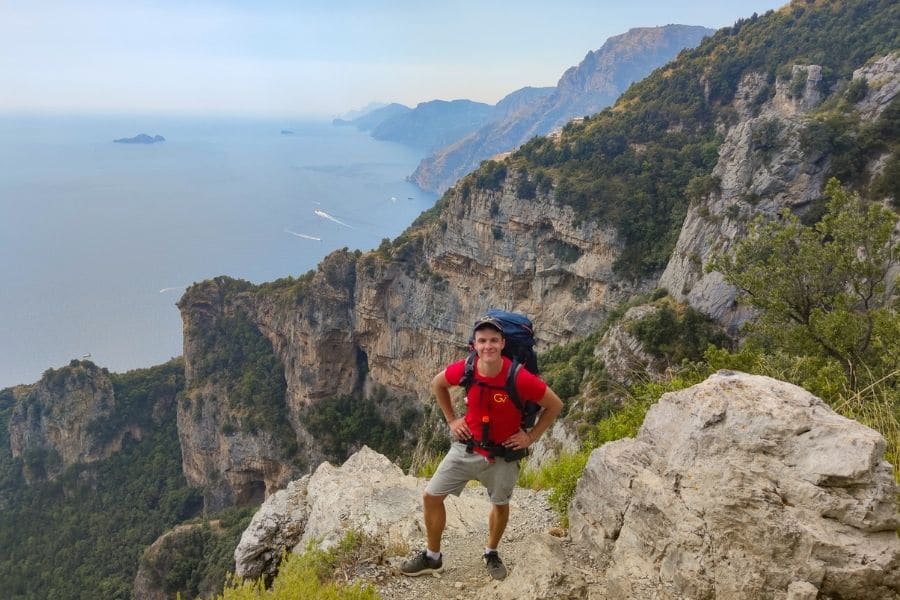
Disclosure: This article features affiliate links, including Amazon.com. If you decide to buy through one of these links, I’ll earn a small commission at no extra expense to you. For more details, please see my disclosure policy.
1. Why even go solo?
Traveling by yourself might feel intimidating initially. There’s no one by your side to rely on when you have questions, feel down, or face challenges. You can only rely on yourself when you embark on a solo trip. That’s precisely what makes solo backpacking such a rewarding experience. There are numerous benefits to traveling alone. It can boost your self-esteem, increase your confidence, make you more courageous, and provide opportunities to meet inspiring individuals.
Backpacking solo offers a unique experience filled with unexpected situations, cherished memories, new connections, and a journey brimming with adventures. It will enhance your ability to handle various challenges and foster a deeper appreciation for what you have. Nothing can stop your personal growth.
Read more: Benefits of Solo Travel.
2. Before you depart, review these essential documents
First and foremost, before traveling abroad, you’ll require certain documents to move from one country to another, book a room, or legally identify yourself.
Safety first – Obtain Travel Insurance

Travel insurance is a must for any traveler; it’s common sense. I always secure travel insurance when going abroad, and thankfully, I’ve never needed medical treatment. However, I’ve heard numerous stories about people who embarked on trips without it. You can probably guess how those stories ended. No one is ever 100 percent safe when backpacking solo. Unforeseen incidents can occur at any time. Spending all your savings on medical bills wouldn’t be ideal, which can be ridiculously high in many countries.
Don’t forget essential documents
Other essentials for solo backpacking include your most important documents, starting with your passport. Ensure it remains valid for at least six months ahead. Some countries won’t allow entry if your passport is set to expire within the next six months.
In Europe’s Schengen Area, having an identification card for making accommodation reservations or other transactions requiring verification is also helpful. If available, bringing a driver’s license, student ID, or any other discount cards is advantageous to aid in budgeting.
Read more: Planning a Backpacking Trip to Europe! (guide)
3. Essential Gear for Your First Solo Trip
Having reliable and durable gear is fundamental to a successful solo backpacking trip. Invest time determining what you need or want, but always aim to pack as light as possible—wondering where to start?
What Kind of Backpack Do I Need?
Firstly, possessing the right solo backpack is crucial. Opt for quality that feels as comfortable on your back as a shoe does on your foot. It should feel right from the first try. Consider various features, such as the ability to convert it into a smaller backpack, the ease of access (so if you need items at the bottom, you don’t have to unpack everything), its water resistance, and whether there’s adequate space for essential items (like documents, electronics, and other valuables).
For example, I have a Thule Guidepost 65L Backpack. It’s already been on my back for three years, and I’m still very satisfied.
What to wear?
Clothes will occupy the majority of your backpack. When backpacking, you’ll need to change outfits daily due to sweating. I recommend opting for sporty attire that dries quickly in the clothing department. This means you can wear sporty shirts for several days.
Solo backpacking often involves a lot of hiking, so quality footwear is essential. For everyday use, sports shoes are suitable. However, hiking boots that offer ankle protection are safer if you plan to hike in mountainous terrains. For your first solo backpacking trip, ensure you have enough clothes to last at least a week. This way, you’ll only need to think about laundry once a week.
Other essential backpacking gear

Your additional items depend entirely on how you plan to backpack through Europe. Aside from documents and clothes, you won’t need much else if you’re solo backpacking with a guaranteed roof every night.
However, if you’re a more adventurous solo backpacker and sleeping under the stars appeals to you, you’ll need extra gear. This includes camping essentials like a sleeping bag, mattress, and a compact first aid kit. Consider bringing a bowl, spoon, and knife from the kitchen department. A portable stove is also a must-have for those who enjoy cooking (or even if you don’t).
Read more:
Lightweight Backpacking Gear for Traveling;
Backpacking Europe Packing List For Women.
4. Packing a backpack

First and foremost, the most crucial tip is to pack as lightly as possible. Remember, you’ll be carrying everything on your own. I recommend not exceeding 15 kilograms for your first solo backpacking trip, including extra food and water. The weight might feel manageable initially, but it can become burdensome if you wear it all day.
Initially, you might have a list of items that won’t fit. Perhaps too many clothes or superfluous equipment. Ultimately, the art of solo backpacking lies in packing all the essentials while still leaving some room for unexpected items.
How to Fit Everything into a Backpack?
Firstly, consider leaving some clothes in the closet. Pack enough clothing for a week and include at least one extra pair of shoes and flip-flops. Avoid packing unnecessary items. A key tip: Only bring items you use often, so plan thoughtfully.
Also, leave at least 10 percent of your backpack’s space free for food, water, and unexpected items.
Read more: How to pack a tent for backpacking.
5. Bring Something to Ward Off Boredom

While it might seem contradictory to the earlier advice of packing light, there’s a rationale behind this. Solo backpacking means you’ll have moments of solitude. While solitude can be refreshing, there will be times when you might feel bored.
Bring along something that keeps boredom at bay. For instance, I enjoy reading, so I always have a book with me. If you’re passionate about photography, bring a camera. Or, if you enjoy entertaining yourself or even a larger audience on the streets (perhaps to earn some money), consider packing a compact instrument like a ukulele.
How do you fit these into your bag? A book is easy, but you might need to leave some things at home for the ukulele. Along the way, you will find ways to carry your stuff.
6. Plan Your Trip Based on Time and Budget
The nature of your trip hinges on how much you’re willing to spend and the duration of your travels. While adventurous solo backpackers might argue that spontaneity is key and that there’s no need for a plan, this approach is great for solo travel. However, if you’re working with a specific budget or time constraint, it’s advisable to have a general plan for your first solo journey.
If you’re pressed for time, prioritize various activities to maximize that limited period. Draft a concise bucket list of sights you want to see and experiences you wish to have. If money isn’t a pressing concern because you have a set end date, that’s a relief. However, always ensure you have a return ticket. The goal is to maximize every moment.
For longer trips, especially those without a definitive end date, it’s crucial to adhere to a strict budget. The aim is to minimize expenses. A valuable tip for solo backpacking is to take things slow. This approach offers two significant advantages: without the rush, you’ll gain a deeper appreciation of your destinations, and by reducing the need for frequent transportation, you’ll save money. Embrace a leisurely pace and immerse yourself in local cultures and communities.
7. Best solo backpacking destinations in Europe

The ideal destination largely depends on the solo backpacker’s preferences, mode of travel, and overall budget. First, determine the kind of solo trip you’re aiming for. Consider the western part of Europe if you’re drawn to renowned cities, landmarks, or tourist hotspots. However, if you’re seeking adventurous travel, untouched wilderness, hidden treasures, and hiking trails, the eastern part of Europe might be more fitting. It’s also worth noting that the western region tends to be pricier than the eastern one.
Read more: Best cities in Europe for solo travel.
Western Europe
In Western Europe, prime countries for solo travel include Italy, France, Spain, and Portugal. These expansive nations boast many stunning locales, day trips from major cities, iconic landmarks, and natural wonders. Spain and Portugal are particularly appealing destinations for those on a tighter budget.
Remember, there are always ways to economize, regardless of your destination. For instance, explore tips on backpacking through Italy on a budget.
Read more: Italy travel guide.
Eastern Europe
The lesser-known eastern regions of Europe also offer fantastic destinations. Consider starting with Budapest in Hungary, then exploring Slovenia, Romania, or the Balkan countries for off-the-beaten-path solo adventures. These nations might not be as frequented as their Western counterparts, but they’re teeming with undiscovered treasures. Undoubtedly, this part of Europe is more suited for adventurous travel and budget-conscious backpackers.
Read more:
Greece travel guide;
Albania travel guide;
Slovenia travel guide;
Hungary travel guide.
So, what are the top destinations in Europe? It truly depends on the individual traveler’s desires and what they’re eager to explore. Budget considerations also play a significant role. Rest assured, Europe has no shortage of excellent spots for solo travel.
8. Seek Out Fellow Travelers

A significant advantage of backpacking solo is meeting many new people. It’s not that individuals approach you simply because you’re alone. That doesn’t work so easily. You’ll need to muster the courage to initiate conversations. However, the desire to connect with others can boost your confidence, pushing you out of your comfort zone. You can strike up conversations on the streets, in bars, hostels, or even online through social media and travel apps. Here are some helpful apps:
Couchsurfing
In my opinion, this is the best platform to connect with incredible individuals from all over. There’s a “hangouts” section where travelers and locals can interact, making plans to enjoy activities together. It’s a favorite among many travelers.
Tinder
While primarily known as a dating app, Tinder can also be effective for meeting new people abroad. Many users are open to showing you around or hanging out if approached respectfully.
Workaway
This app is another favorite among travelers. Its primary function is to connect farms, organizations, or small businesses with individuals willing to work in exchange for food and accommodation—a voluntary exchange program. Additionally, there’s a “travel buddy” section where you can connect with other adventurous individuals.
Read more: Best apps for backpacking.
9. How to Budget While Backpacking Solo?
When picturing a typical backpacker, it’s common to imagine someone not flush with cash to spend lavishly at every turn. Backpackers often explore various strategies to minimize expenses and budgeting is also essential for solo backpacking. Here are three primary areas where you can significantly reduce costs.
Accommodation

A logical choice for accommodations would be hostels. They offer the most affordable and hassle-free option for solo backpackers. For instance, HostelWorld boasts the most extensive selection of hostels. When browsing, start by sorting by the lowest price.
Also, consider its location, read reviews, and check for additional perks (like included breakfast). Weigh the benefits, location, and price when making a decision. Sometimes, it’s worth paying more for a centrally located hostel rather than choosing the cheapest one far from the main attractions.
Couchsurfing
As mentioned, the Couchsurfing app isn’t just for meeting new people. Its primary function is to help travelers find a couch to sleep on. You send cordial requests to potential hosts; if they accept, you can stay at their place for the night. Engaging with locals enriches the travel experience, and there’s no better platform for this than Couchsurfing.
Wild Camping
Wild camping is an option almost everywhere if you’re willing to simplify your needs. While not exactly suitable for city centers, you can find spots where it feels logical and convenient. All you need is a sleeping bag, and a mattress and tent can be beneficial for added comfort. It’s truly an immersive experience for a solo backpacking trip!
Read more: Camping Alone: Tips On How To Feel Safe.
Transport
For those on a budget, public transport is the best choice. Local trains and buses offer excellent connections between European countries, allowing you to traverse Europe efficiently. To search for transport schedules and compare prices, I recommend using Omio. If Omio doesn’t list transportation options for less-known destinations, you can find local transport providers on Rome2Rio.
Carpooling with BlaBlaCar
BlaBlaCar is gaining popularity in Europe. It’s a carpooling app where you search for your destination, and if you find someone driving that way, you can join them. It’s often more affordable than public transport.
Hitchhiking
One of my top transport tips is hitchhiking. It’s an experience worth adding to your bucket list, even if you to try it once. Some days, you might get fortunate and make quick progress, while others might be slower.
Read more: Tips for Hitchhiking in Europe.
Food
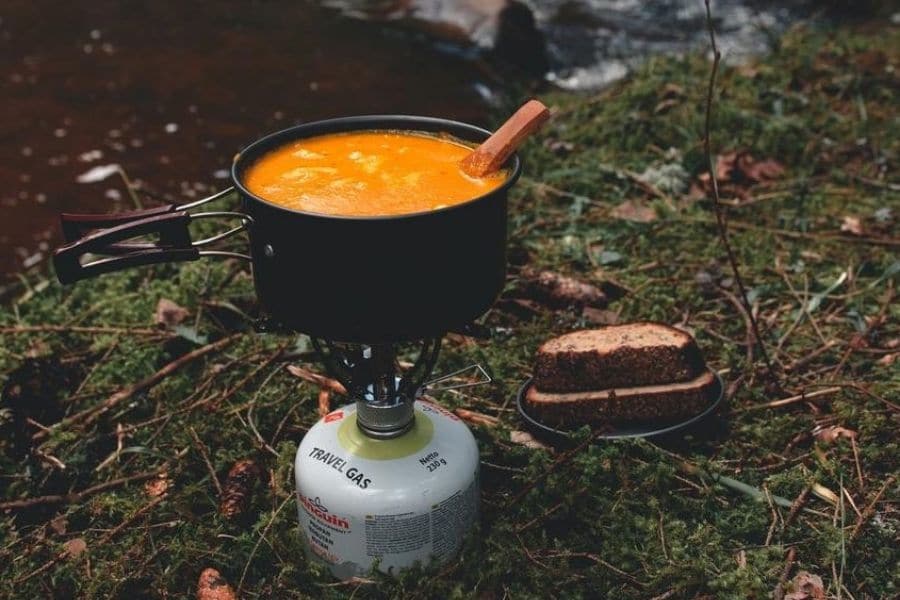
The first rule is to steer clear of restaurants. While treating yourself occasionally is okay, it’s essential to remain disciplined and resist frequent temptations. Dining out can quickly deplete your funds. If you choose restaurants, choose those away from touristy areas, where locals dine. Alternatively, street food is a great way to satisfy your hunger without breaking the bank.
Another sensible approach is to purchase groceries from supermarkets and enjoy picnics outdoors. However, the most cost-effective tip for meals is to cook for yourself. Whether preparing pasta in a hostel kitchen or cooking in the wilderness with your stove, self-catering will save you significantly.
Read more: Budget backpacking tips.
10. Leave room for spontaneity
Having a general idea of what you want to do or where you want to go is essential. Conduct preliminary research about your upcoming solo backpacking trip, such as marking desired destinations on Google Maps. This gives you a sense of direction to begin your journey.
However, once you’re on the move, allow for spontaneity. Perhaps you’ll hear about a nearby intriguing location or a hidden gem you wouldn’t want to miss. Being flexible is the best advice for solo backpackers, ensuring you savor every moment of your adventure.
11. Immerse Yourself in Local Culture and Traditions
Traveling is less about the places you visit and more about the people you meet in those places. To truly appreciate a backpacking destination, it’s essential to immerse yourself in its local culture and traditions.
Begin with some research about your destination. Familiarize yourself with local events, beliefs, traditions, and culture. This way, when you arrive in a foreign country, you won’t come across merely as a tourist, but as a traveler eager to integrate into the culture. Additionally, learning even a few basic phrases in the local language can earn you greater respect from the locals.
So, what’s the best way to understand local culture?
Engaging with locals is the most authentic approach. For instance, I participated in a Workaway in Hungary for a week during my European backpacking journey. This experience allowed me to witness the daily lives of locals, understand their traditions, and sample local food and beverages. The Couchsurfing platform is also an excellent way to make new friends and gain insights into life in a foreign country.
In the end, ask yourself: What will be more memorable? Merely visiting renowned attractions abroad or experiencing those places with a deeper understanding of their stories, and culture, and engaging with the locals?
12. Stay in hostels or Couchsurfing
As previously highlighted, solo travel can sometimes feel isolating. While you might spend a lot of time exploring on your own, it’s essential to have human interactions. You might have items like a book or guitar to keep you company, but they can’t replace meaningful conversations.
If you want to connect with like-minded individuals, staying in a hostel is an obvious choice. Hostels are some of the most diverse and international places you can find in any country you visit. You might encounter other solo backpackers eager to chat and share experiences. Not only are hostels conducive to socializing, but they’re also budget-friendly. It’s a win-win.
Another fantastic way to meet people is through Couchsurfing. While you’ll primarily interact with locals, it offers a unique opportunity to delve deeper into the destination. Your hosts might even act as informal guides, showing you around and saving you the effort of extensive research. It’s truly a remarkable experience!
Read more: My First Solo Backpacking Experience in Europe.
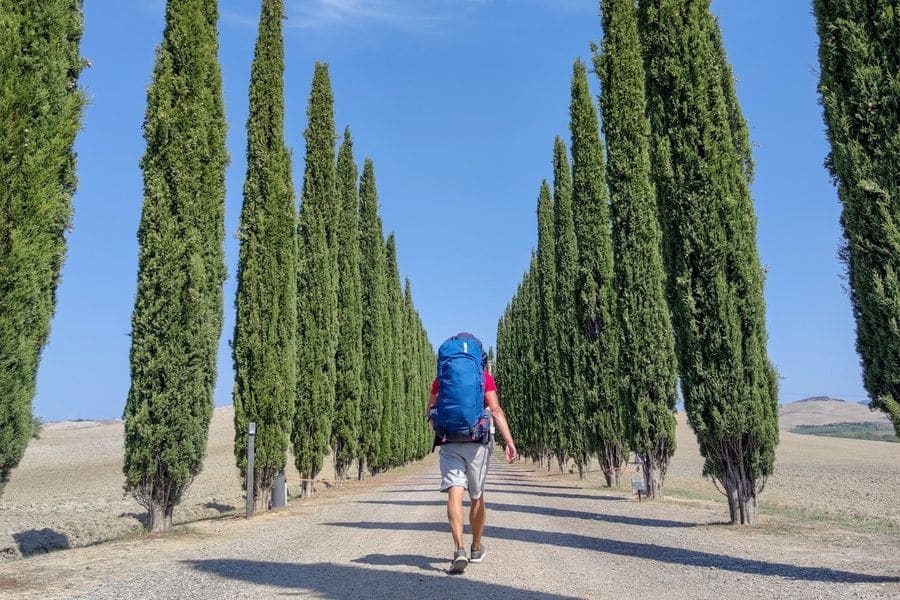
Conclusion
These solo travel tips are perfect for jumpstarting your journey, especially if you’re new to backpacking in Europe. As you progress, you’ll uncover other unique benefits tailored to your experiences since each backpacker’s adventure unfolds differently. You’ll soon realize that it’s a life-changing experience, and everything tends to work out despite any challenges. Rest assured, solo backpacking in Europe is safe. Dive into your first adventure and travel without any regrets!
PIN IT

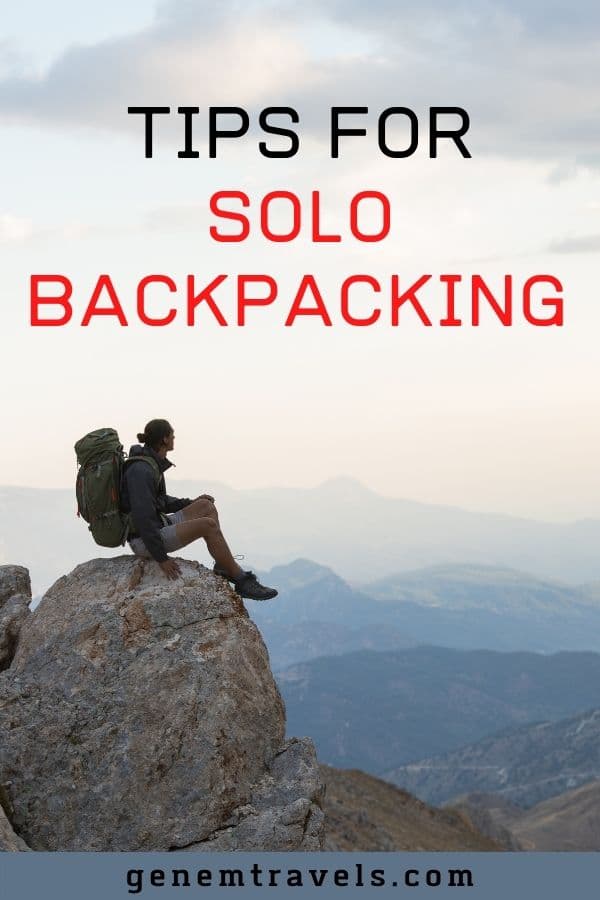
Recent Posts about Solo Travel:
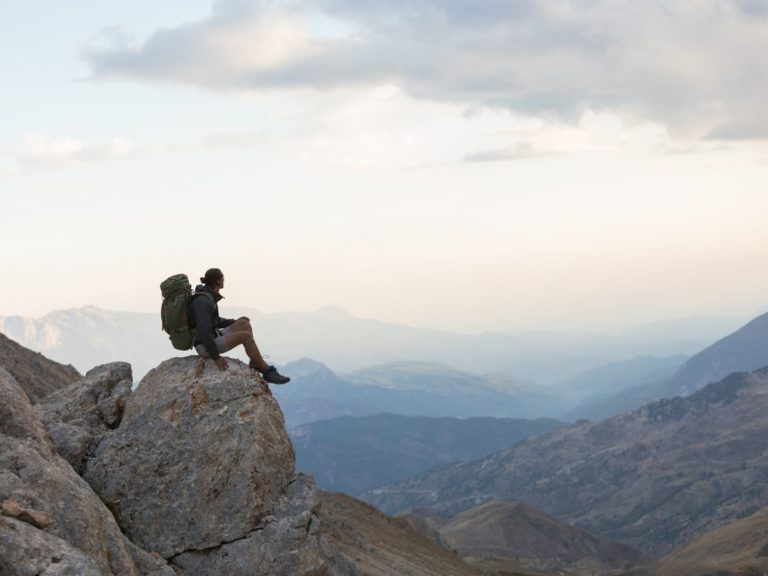
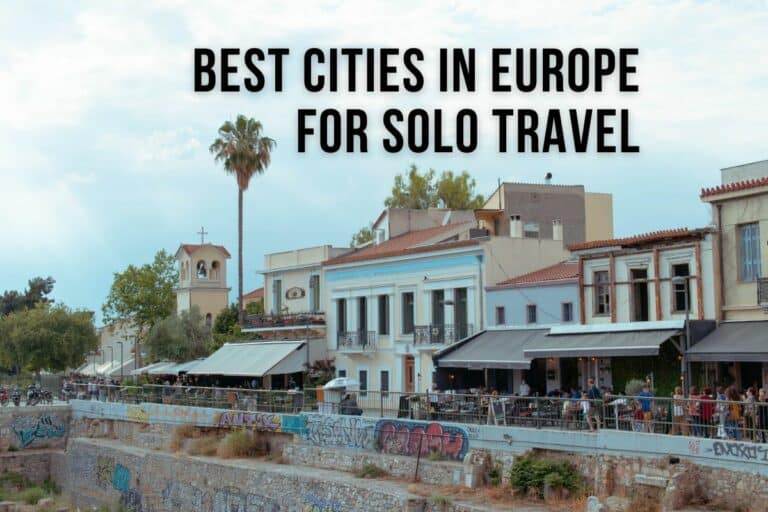
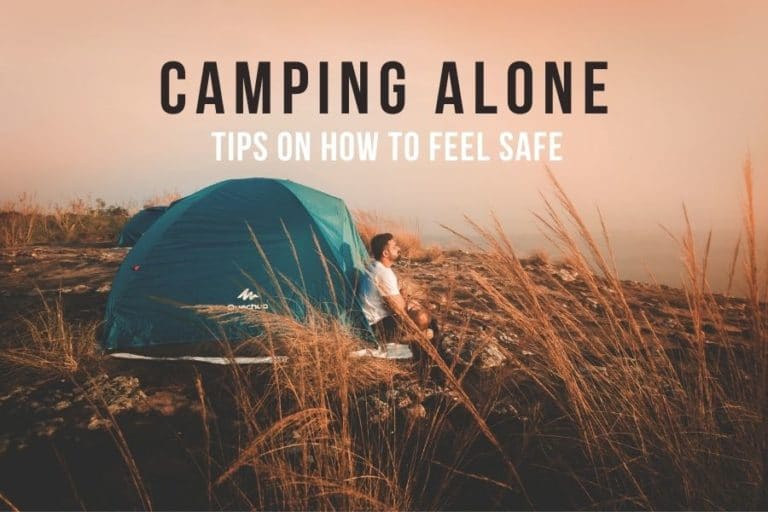
Good post!
Thanks!
Comments are closed.